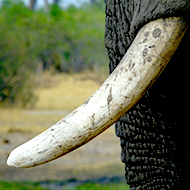Government consulting on expansion of 2018 Ivory Act

The survey will be open until 11 September 2021.
DEFRA is launching a consultation seeking views from the public, industry, and stakeholders on extending the Ivory Act to other species.
The consultation will gather opinions on whether the Government should bring forward legislation to extend the ban on the commercial dealing of elephant ivory in the UK to other ivory-bearing species.
The Ivory Act 2018, when commenced, will ban the sale, purchase, or hire of items which are made of or contain elephant ivory, regardless of the age of the item. This ban will apply to dealings which take place within the UK, and to imports and exports to and from the UK for commercial purposes.
International environment minister Lord Goldsmith, who launched the consultation, said: “The Ivory Act is one of the toughest bans of its kind in the world and sends a clear message that we are doing all that we can to save elephants from the threat of extinction.
“However the ivory trade is a conservation threat for other magnificent species such as the hippo, narwhal and walrus that are at threat. So I urge everyone to share their views to help ensure we can protect more animals from the grim ivory trade.”
DEFRA is consulting on three options. Firstly, extending the Ivory Act to hippopotamus ivory, and secondly, extending the Act to ivory from five CITES-listed species (hippopotamus, narwhal, killer whale, sperm whale, and walrus).
The third option is to do nothing and continue to apply current international and domestic conservation rules.
The survey will be open for opinions until 11 September 2021, and can be accessed here



 RCVS Knowledge has called on vet practices to audit their post-operative neutering outcomes.
RCVS Knowledge has called on vet practices to audit their post-operative neutering outcomes.